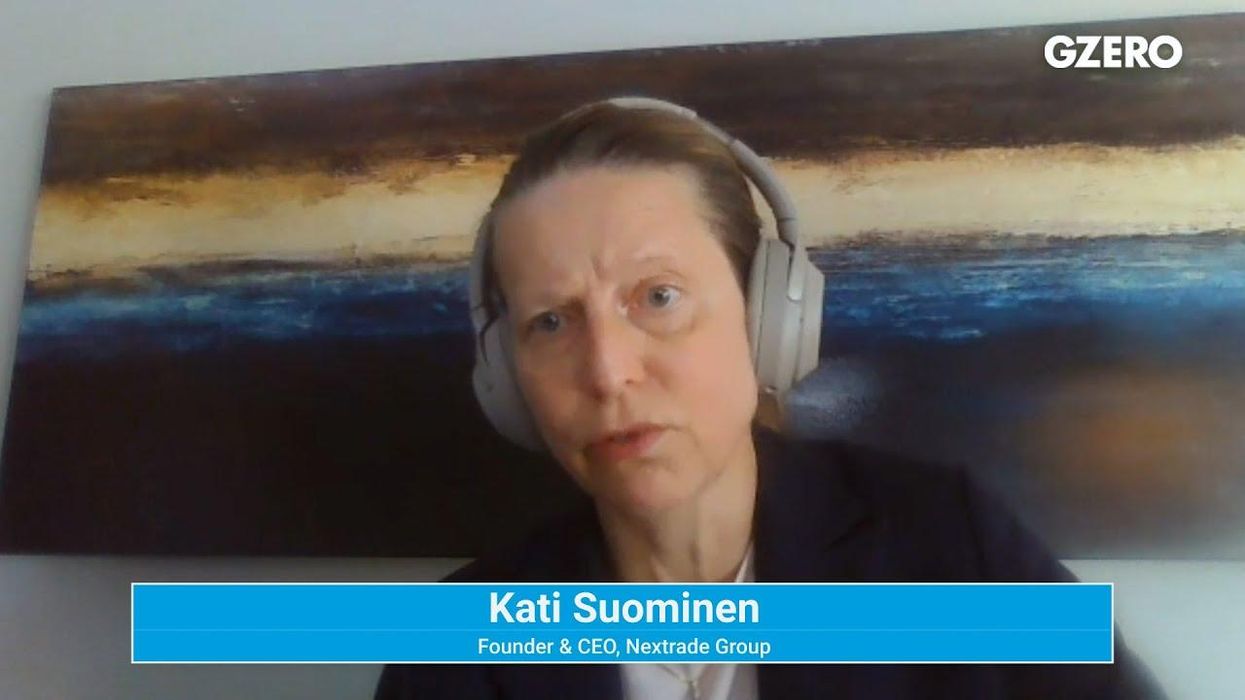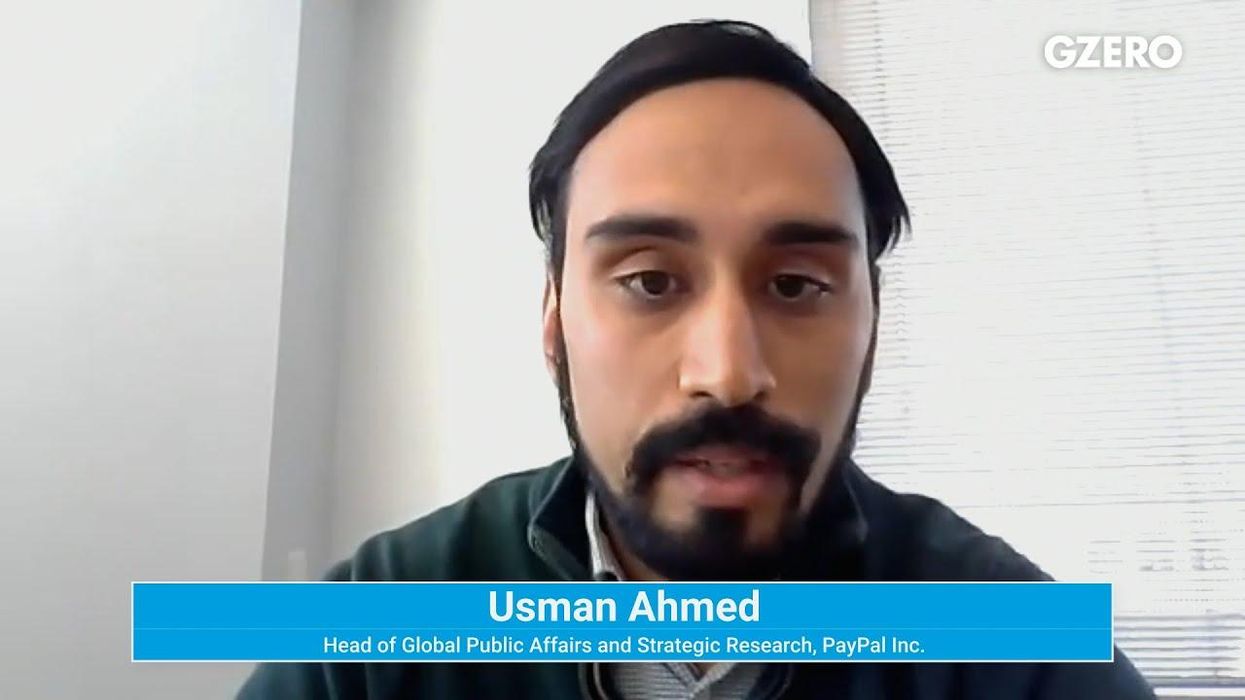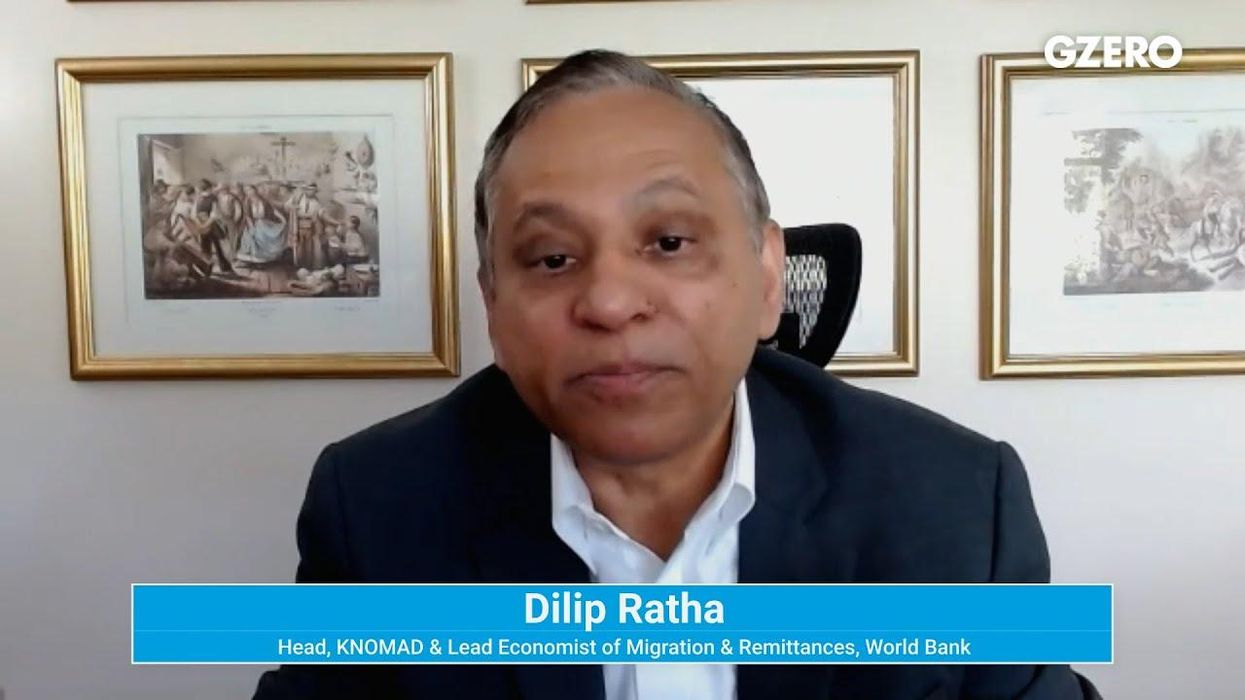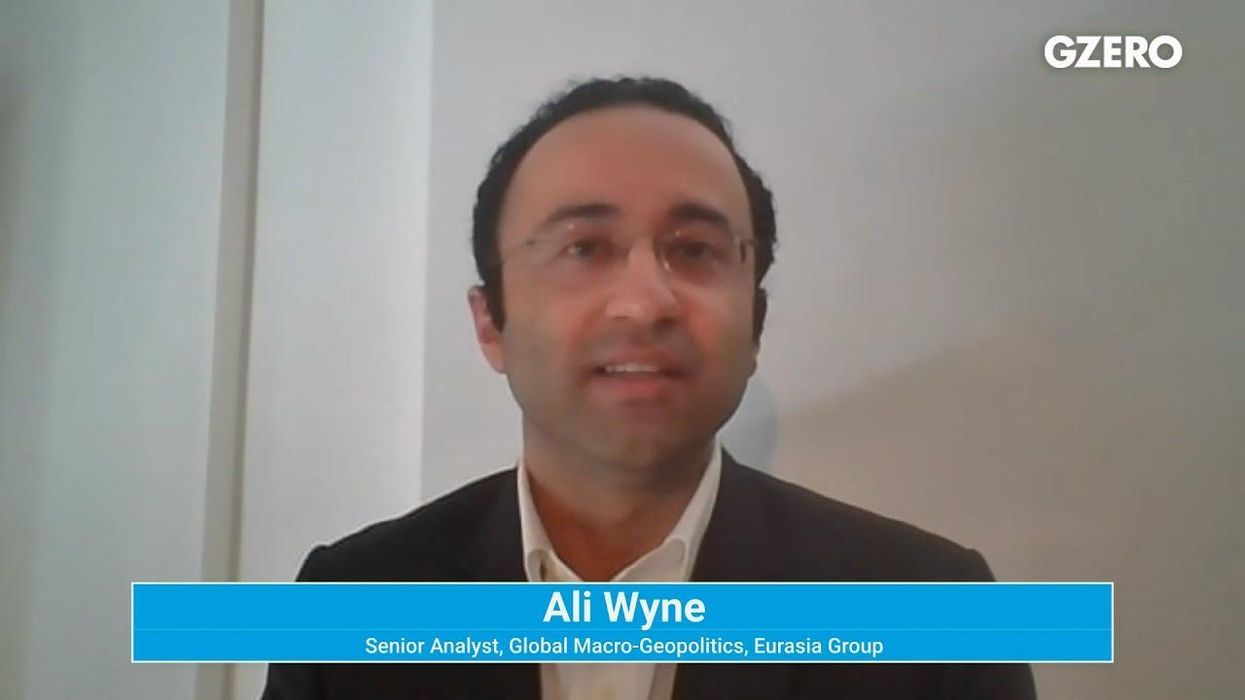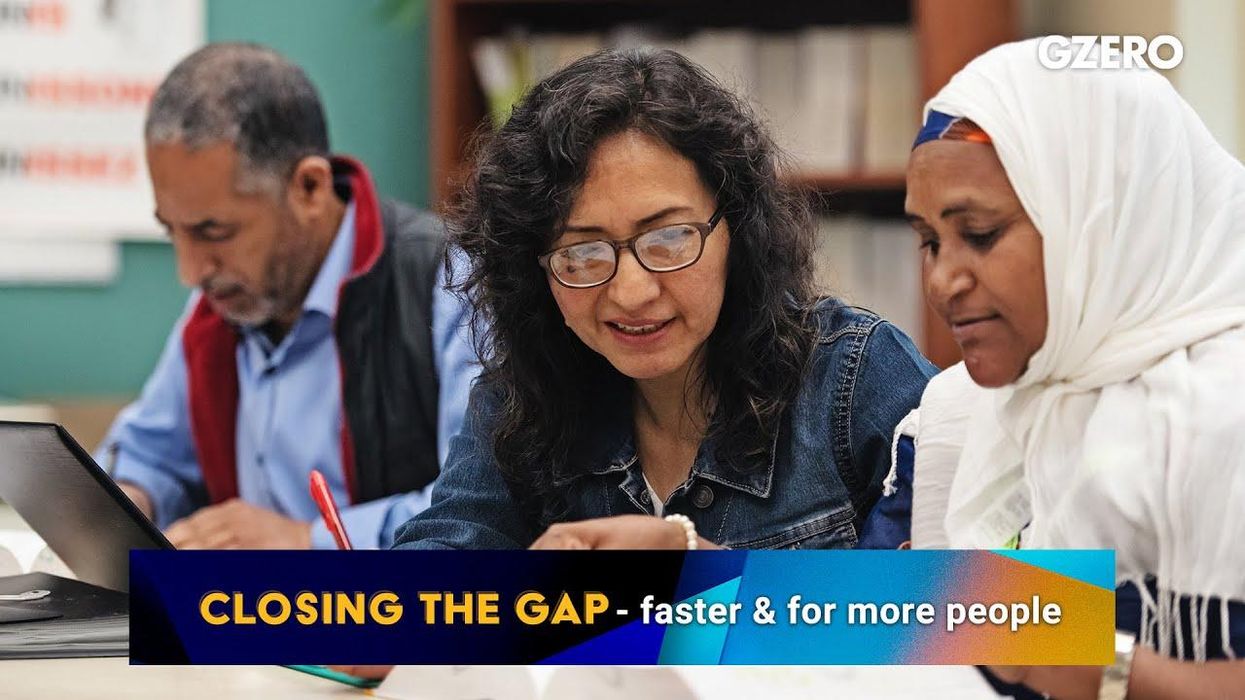Trending Now
We have updated our Privacy Policy and Terms of Use for Eurasia Group and its affiliates, including GZERO Media, to clarify the types of data we collect, how we collect it, how we use data and with whom we share data. By using our website you consent to our Terms and Conditions and Privacy Policy, including the transfer of your personal data to the United States from your country of residence, and our use of cookies described in our Cookie Policy.
Closing the Gap
How did the pandemic facilitate cross-border trade?
It certainly helped move things along more efficiently in two ways, Nextrade Group founder and CEO Kati Suominen says during a livestream conversation on closing the global digital gap hosted by GZERO in partnership with Visa.
First, customs agencies in many countries (finally!) went paperless — a huge help for small businesses. Second, COVID accelerated the move toward logistics tech innovations like data-driven route optimization or drone delivery that make it easier and faster to deliver stuff.
Is there any downside to going cashless?
Not really, but there are challenges, Usman Ahmed, head of Global Public Affairs and Strategic Research at PayPal, says during a livestream conversation on closing the global digital gap hosted by GZERO in partnership with Visa.
On the one hand, digitizing payment allows the creation of other financial services around it — mainly access to finance for the unbanked. On the other, there are privacy and security concerns, although these also exist with cash.
Dilip Ratha knows how hard it is to work abroad and send money home. Why? Because he had to go through the same hoops when he was a migrant.
It's the inconvenience and the cost, the World Bank's head of KNOMAD and lead economist says during a livestream conversation on closing the global digital gap hosted by GZERO in partnership with Visa.
Still, Ratha points out, these flows are a lifeline for millions of poor families around the world. And they keep the lights on in remittance-dependent economies like El Salvador or Lebanon.
What happens when 1.4 billion people are cut off from the global economy because they don't have a bank account at a time of mounting crises?
"The geopolitical ramifications are potentially huge," Ali Wyne, senior analyst for Global Macro-Geopolitics at Eurasia Group, says during a livestream conversation on closing the global digital gap hosted by GZERO in partnership with Visa.
First, it was COVID. Then came the twin blows of the food and energy crises, aggravated by Russia's war in Ukraine. When people are struggling, Wyne adds, they'll look to their governments for solutions.
In the next decade, 70% of new value in the global economy will come from digital businesses. But more than 3.5 billion people without internet access will be cut off, and not all of them will live in the developing world.
“This is very much a global challenge,” Eurasia Group senior analyst Ali Wyne says in a livestream conversation hosted by GZERO in partnership with Visa.
One of the most important changes happening in the global economy today is invisible. It’s the accelerating move from hard currencies and brick-and-mortar banks to digital and mobile-based platforms for commerce, payments, and banking.
This shift, which got a boost from the COVID pandemic, will transform the global economy from the ground up: broadening households’ and entrepreneurs’ access to the financial tools they need to thrive and grow, which strengthens national and regional economies, ultimately spurring more global economic growth. The annual value of the digital economy is already valued at $14.5 trillion. And through the next decade, it will account for nearly three-quarters of global GDP expansion.
What We’re Watching: Boosting access, gender equality, and trust in the digital economy
A customer sets-up M-Pesa money transfer servive inside a store operated by Kenyan's telecom operator Safaricom.
More tha 3 billion people are still not operating within the digital economy, thus widening global inequality. We look at three issues the world’s grappling with to bring them on board.
Why internet access is everything
Scan any UN report’s “development goals” and the importance of expanding global internet access becomes obvious. To end poverty, boost healthcare, improve the quality of education, reduce all forms of inequality of opportunity, create jobs, power innovation, and enhance life in the world’s cities, more human beings need reliable access to the internet. That’s why it’s disappointing that half the world’s countries remain slow to introduce information and communications technologies (ICT) in schools and that too many poor countries still lack the mobile broadband needed to connect. The pandemic has been a good-news, bad-news story here. The virus has forced greater investment in ICT and provided people everywhere with obvious incentives to learn how to use it. But a difference in means ensures the gap between rich and poor countries has grown wider. The solution to these problems depends, as ever, on greater international investment. This isn’t charity, and it isn’t simply a matter of “fairness.” All countries need a stronger, more resilient, and more sustainable global economy. Shared prosperity depends now more than ever on access to the internet for everyone.
